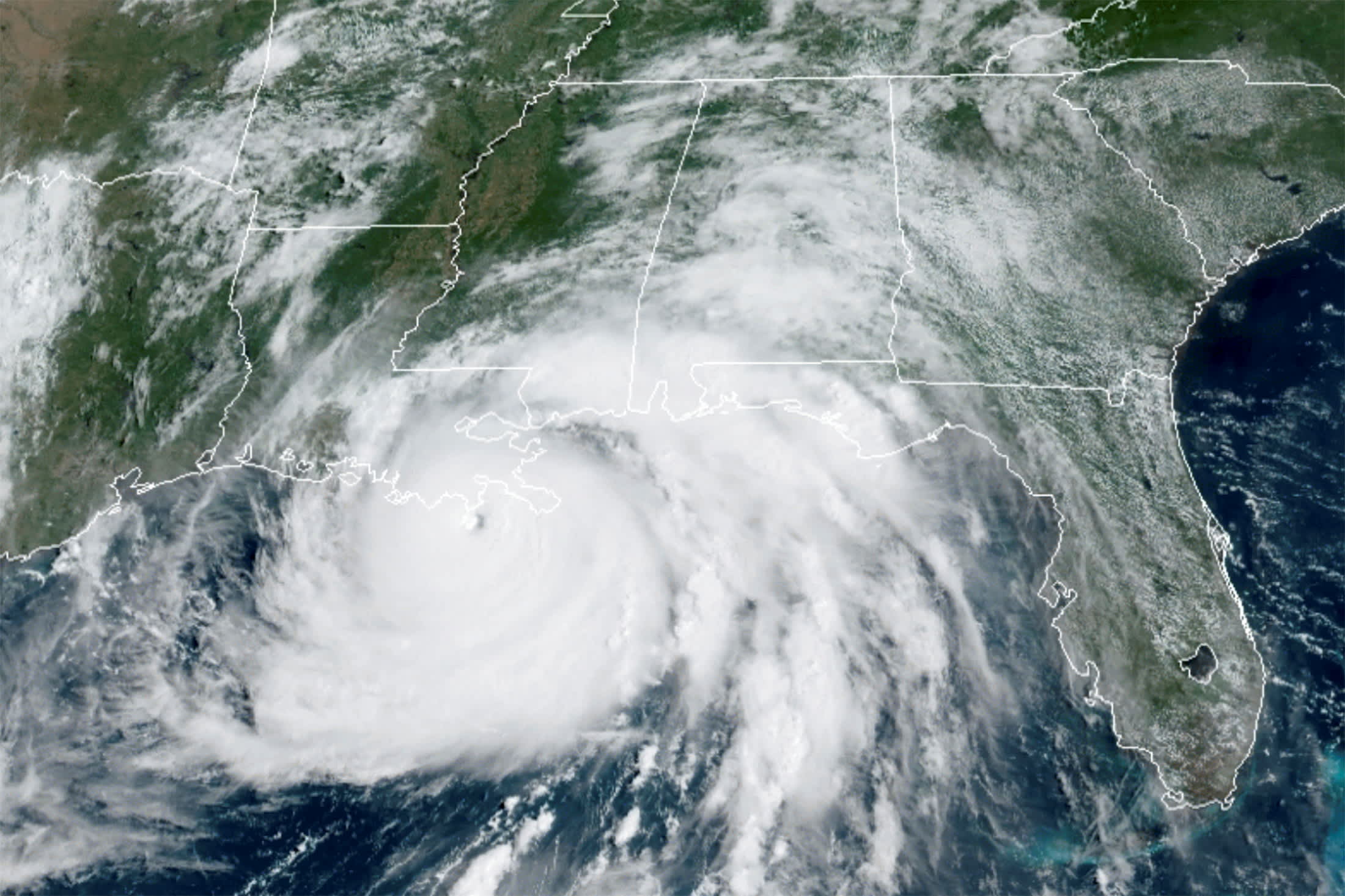Ida now a tropical storm as more than 1 million Louisiana utility customers are left without power

Traffic moves bumper to bumper along I-10 West as residents evacuate towards Texas before the arrival of Hurricane Ida in Vinton, Louisiana.
Adrees Latif | REUTERS
Hurricane Ida made landfall in Louisiana on Sunday as a Category 4 storm with winds of 150 miles per hour, one of the strongest storms to hit the region since Hurricane Katrina, the National Oceanic and Atmospheric Administration said.
Ida has since been downgraded to a tropical storm and is expected to move farther inland over southeastern Louisiana and into southwestern Mississippi later this morning, the National Hurricane Center said. Maximum sustained winds have decreased to near 60 mph (95 km/h) with higher gusts.
Late Sunday, President Joe Biden approved a major disaster declaration for Louisiana, unlocking federal funding for recovery efforts.
The storm is expected to weaken rapidly over the next day or so, and the NHC said Ida is expected to become a tropical depression by this evening. The NHC warned that a life-threatening storm surge is expected for Grand Isle, Louisiana, to the Alabama/Florida border, including Lake Pontchartrain, Lake Maurepas, and Metropolitan New Orleans.
The NHC said winds will likely damage trees and trigger power outages as Ida continues to move inland over southeastern Louisiana. Heavy rainfall is expected through Monday across southeast Louisiana, coastal Mississippi as well as southwestern Alabama, and could trigger “considerable to life-threatening flash and urban flooding.”
As of early Monday, more than 1 million Louisiana utility customers are without power, according to PowerOutage.us. On Sunday evening, New Orleans said the entire city lost power after “catastrophic transmission damage.”
Ida made landfall on the anniversary of Katrina, the dangerous Category 3 storm that devastated Louisiana and Mississippi 16 years ago, killing more than 1,800 people and causing $125 billion in damage.
The strength and path of Ida will be a significant test of New Orleans’ post-Katrina flood defenses, including levees, flood walls and gates that were built to provide storm protection. Katrina had caused levee breaches and catastrophic flooding in New Orleans.
Ida has also triggered concerns about the city’s hospitals, which are already overwhelmed with Covid-19 patients and have little room for evacuated patients. In Galliano, Louisiana, the struggle to care for patients as the storm roared ashore was exacerbated after a part of the roof of Lady of the Sea General Hospital blew off.
Ida intensified so quickly that officials didn’t have time to order mandatory evacuations. New Orleans Mayor LaToya Cantrell ordered a mandatory evacuation for a small area of the city outside the levee system, but said there wasn’t time to issue one for the whole city.
Shelters in Louisiana will run at reduced capacities due the pandemic, though state officials are working to secure hotel rooms for evacuees.
All Sunday flights were also canceled due to the approaching storm, the New Orleans Airport said Saturday.
Water enters a beach house as Hurricane Ida makes landfall in Grand Isle, Louisiana, U.S. August 29, 2021 in this still image taken from social media video. Christie Angelette via REUTERS THIS IMAGE HAS BEEN SUPPLIED BY A THIRD PARTY. MANDATORY CREDIT
Christie Angelette | Christie Angelette via REUTERS
President Joe Biden has declared a state of emergency for Louisiana and Mississippi, a move that authorizes the Department of Homeland Security and Federal Emergency Management Agency (FEMA) to coordinate all disaster relief efforts.
“The storm is a life-threatening storm,” the president said during a briefing at the FEMA headquarters on Sunday. “Its devastation is likely to be immense. Everyone should listen to the instructions from local and state officials.”
Louisiana Gov. John Bel Edwards on Sunday afternoon requested a presidential major disaster declaration from Biden after the storm slammed into the state’s coast.
“Hurricane Ida is one of the strongest storms to ever hit Louisiana,” Edwards said in a statement. “It is our goal to assist our local agencies and the citizens of the state as quickly as possible, and we have pre-positioned search and rescue teams, boats and other assets to begin helping people as soon as it is safe.”
A resident takes home sandbags from a city run sandbag distribution location at the Dryades YMCA along Oretha Castle Haley Blvd., Friday, Aug. 27, 2021, in New Orleans, as residents prepare for Hurricane Ida.
Max Becherer | The Times-Picayune | The New Orleans Advocate via AP
Damaging winds will spread into southwestern Mississippi on Sunday night and early Monday, likely causing widespread tree damage and power outages, and heavy rainfall and is expected across the central Gulf Coast, the Hurricane Center said.
As the storm moves inland, significant flooding is forecast across portions of the Lower Mississippi, Tennessee Valley, Upper Ohio Valley, Central Appalachians and the Mid-Atlantic through Wednesday, according to the Hurricane Center.
Ida is the first major storm to hit the Gulf Coast during the 2021 Atlantic hurricane season. The Atlantic hurricane season of 2020 was the most active on record, with 30 named storms, 13 of which were hurricanes.
Scientists warn of increasingly dangerous hurricane seasons as climate change fuels more frequent and catastrophic storms. NOAA expects the 2021 season to see between 15 and 21 named storms, including seven to 10 hurricanes.
This story is developing. Please check back for updates.
— CNBC’s Melodie Warner and Christine Wang contributed to this report.




